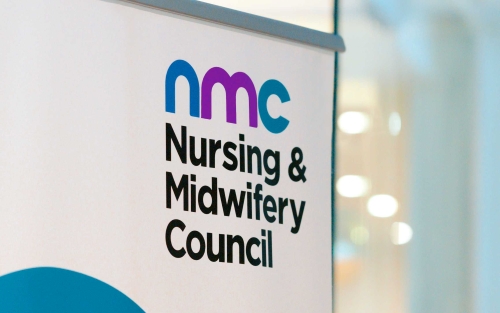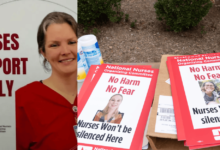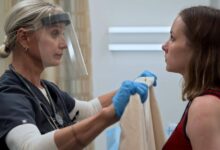NMC to reform revalidation process for disabled nurses

The Nursing and Midwifery Council (NMC) has promised to make its revalidation process more accessible for disabled and neurodivergent people.
The regulator’s pledge comes as it publishes new research into the experiences of disabled nursing and midwifery professionals, the findings of which it said would “factor” into a “future refresh” of revalidation.
“We know that disabled professionals are more likely to opt out of making a revalidation submission”
Emma Westcott
The NMC’s research looked into the reasons for disabled registrants having lower rates of revalidation than those who do not have disabilities.
It found that there was a 3.1 percentage point difference in revalidation rates between people with and without disabilities.
Interviews and discussion groups with 29 current and former registrants with disabilities found that achieving requirements for revalidation including practice hours, continued professional development (CPD) and reflective discussions were a particular challenge.
The practice hours criteria was found to be often disrupted by long-term sick leave, something echoed by nurses with Long Covid worried about revalidation.
Meanwhile, difficulties travelling could prevent registrants from completing CPD, the research found.
The interviewees said they felt “unclear” about what would happen if they declared their disability and when they should do so, as well as who was eligible to confirm their revalidation.
Employers, the report said, varied in their level of support for registrants with disabilities seeking to renew their NMC PIN.
“They could be a support or a barrier,” the report said, with the NMC describing employers as “crucial” to the success of revalidation for nurses and midwives.
A former midwife, who is no longer on the register, told the report: “I contacted my old supervisor of midwives about revalidation. [She said] ‘You can’t revalidate’. That was it. I left.”
A nurse, who remains a registrant, said similarly: “Everybody was really nice, but… I didn’t get my specific questions answered. I didn’t get clarity.
“I didn’t get verbal advice that matched the written advice. So, there was inconsistency, lack of clarity, confusion.”
Further, the report found that disabled registrants were less likely to have the support of their employers because of discrimination, or their status as temporary workers under agencies or banks.
It concluded that more clear information from the NMC could help mitigate the additional challenges faced by disabled registrants.
Speaking after the report’s publication, NMC assistant director of strategy and insight Emma Westcott said: “We know that disabled professionals are more likely to opt out of making a revalidation submission, with our latest research highlighting some of the main reasons behind this.
“We’ve listened to the feedback and are adapting our existing guidance into more supportive resources tailored for disabled professionals.
“This research will also help inform what further support we can provide for disabled professionals as part of a future refresh of the revalidation process.”
The interviews and discussions also found that more “flexible and fair” revalidation requirements could help, such as pro-rata practice hours, as well as more support from employers.
Ms Westcott added: “It’s vital every professional has access to the opportunities, accurate information and right support to ensure revalidation is an equitable experience – so they can continue to develop their knowledge and skills throughout their careers for the benefit of the people in their care.”






